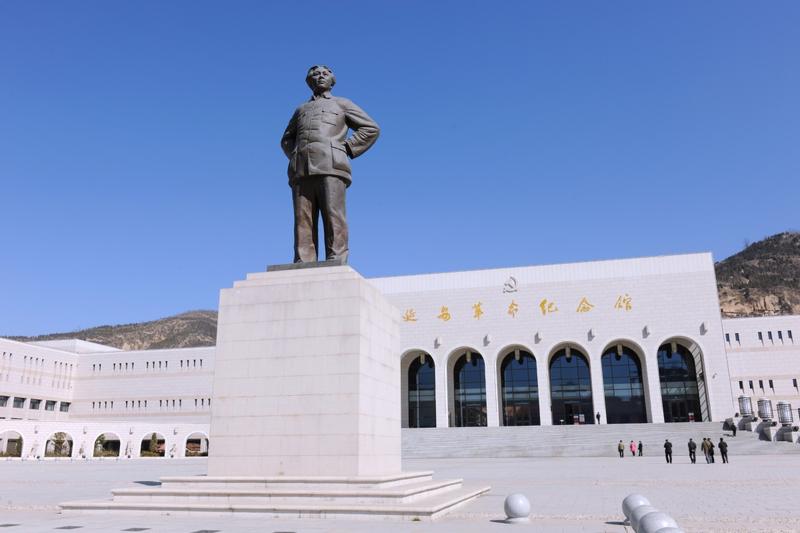 This undated photo shows the Yan'an Revolutionary Memorial Hall in Yan'an, Shaanxi province. (PHOTO PROVIDED TO CHINADAILY.COM.CN)
This undated photo shows the Yan'an Revolutionary Memorial Hall in Yan'an, Shaanxi province. (PHOTO PROVIDED TO CHINADAILY.COM.CN)
Yan'an, Shaanxi province, plans to transform itself over the next three years into a "museum" of China's revolution — a demonstration city of the spiritual crucible of the Communist Party of China — and blaze a trail for the development and prosperity of traditional revolutionary base areas, according to a government document.
Nationwide, there are more than 36,000 sites home to immovable revolutionary relics and more than 1 million individual or sets of movable State-owned revolutionary relics
The implementation plan for the construction of a national cultural relics protection and utilization demonstration zone for revolutionary cultural heritage in Yan'an, released by the city government on Friday, said the initiative will cover 455 revolutionary sites and highlight the 13 years the CPC Central Committee was based in Yan'an, including the period Mao Zedong spent there.
Ji Naijun, an expert in the preservation of revolutionary cultural relics who is based in Shaanxi, said the initiative will strengthen the preservation and improve the utilization of Yan'an's rich revolutionary cultural heritage, and boost local incomes by creating a "Red tourism" boom.
Because it hosted the "heart" of the CPC for more than a decade, the remote city in the mountains of northern of Shaanxi witnessed the forging of the purpose and guiding principles of the Party, such as serving the people wholeheartedly, seeking truth from facts and self-reliance, Ji said.
"It is important for the Party and the people to remember the journey from the past and strive for national rejuvenation as a whole," he added.
ALSO READ: Lunar soil sample on display at museum
According to the plan, the protection of revolutionary relics will be integrated with exhibits at many revolutionary sites and museums. Improvement of the surroundings of revolutionary sites will be a key element.
It also emphasizes education about the CPC's history and Red culture — saying that Yan'an will apply new technologies, methods and media to improve exhibition and education levels to create a more intense revolutionary atmosphere and merge the revolutionary spirit with modern life.
"Such efforts will help lure more 'Red tourism' visitors, bringing prosperity to related local businesses and boosting the incomes of residents who have made personal sacrifices in the city's struggle to strike a balance between economic development and the preservation of relics," Ji said.
The pillar industries of the city remain heavy industry and agriculture. To make Red tourism a new pillar of the city's economy, "there is still a long way to go, with long-term effort needed far beyond the three-year plan," he said, calling for more expertise to be recruited in the research and restoration of revolutionary cultural relics.
In September, the National Cultural Heritage Administration listed Yan'an in the first batch of national demonstration cities for protecting and developing China's legacies. The plan to create a demonstration zone for revolutionary cultural heritage in the city was approved last month.
Nationwide, there are more than 36,000 sites home to immovable revolutionary relics and more than 1 million individual or sets of movable State-owned revolutionary relics.
Qin Zhengjin contributed to this story.


